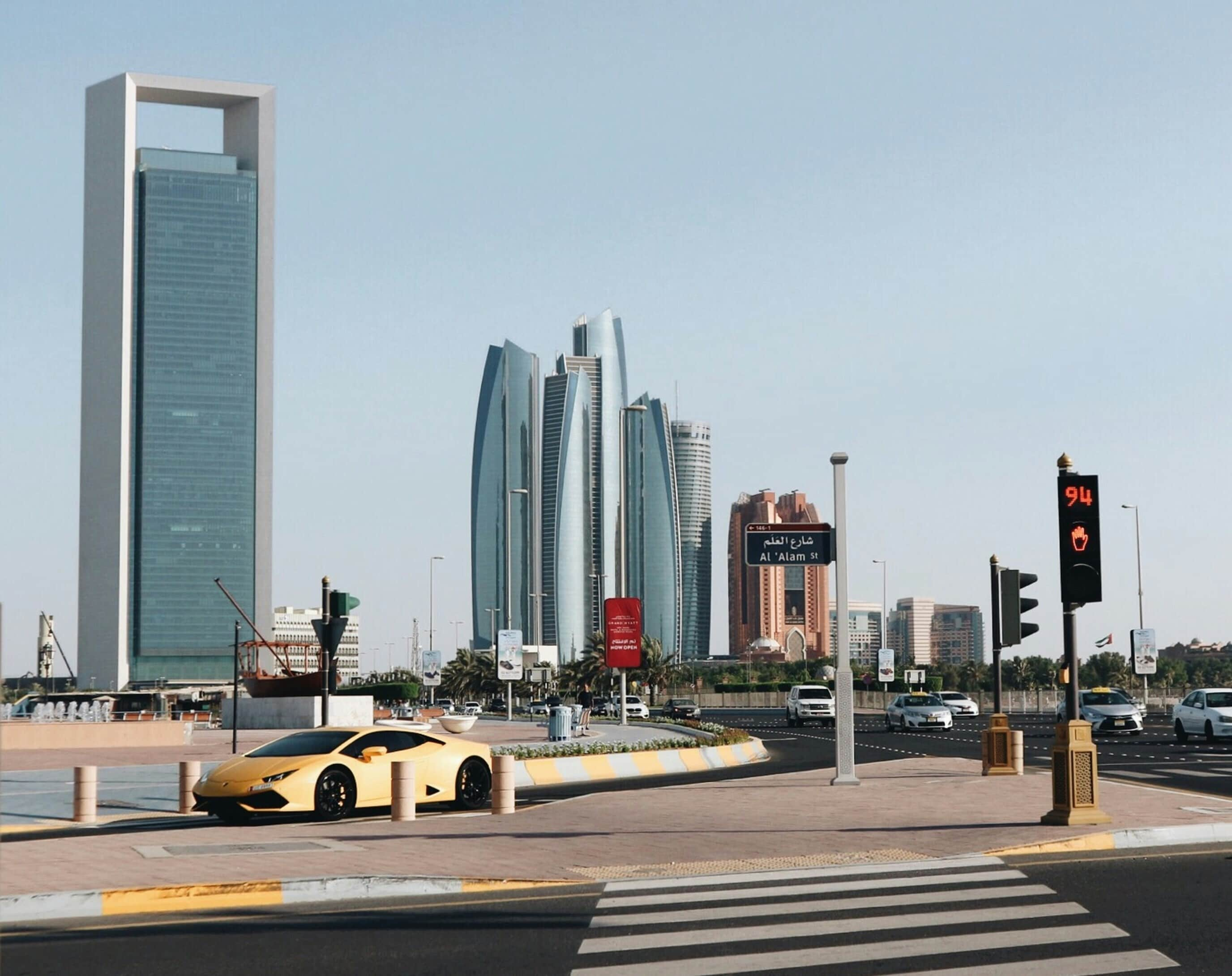The European Innovation Council: Europe's €10 billion bet on seizing the global tech initiative
Europe's economic clout and geopolitical standing depend on its capacity to innovate.
Image: Getty Images/iStockphoto
Stay up to date:
The Digital Economy
- The European Innovation Council aims to rebuild the continent's standing in global tech innovation.
- It will transform Europe's innovation landscape by providing finance and strategic insight.
- To bolster this new ecosystem, greater levels of public-private collaboration and increased focus on deep-tech sectors like AI are needed.
Europe used to be synonymous with innovation and smart investment. Now it struggles to stay relevant, having spent the past decade watching digital giants like Google, Alibaba and Amazon dominate from afar. How did the region that brought the world the printing press, the radio, electric batteries and even the forerunner of the internet fall so far behind? And more importantly, what is it doing to regain its position?
Enter the European Innovation Council (EIC): Europe’s €10 billion bet on reclaiming its global leadership in technology. Launched in 2021, the EIC is the bold overhaul that Europe’s investment strategy desperately needed. For too long, Europe loosened its purse strings for R&D into legacy industries like automobiles and railway transportation – sectors that once led the world but now lag in innovation – instead of investing in the high-risk, transformative technologies that drive “unicorns” (startups valued above €1 billion). The EIC offers the spark and capital to change that.
It starts with an ambitious plan: Transform Europe’s innovation landscape by offering startups and small to medium-sized enterprises both the financial support and strategic guidance they need to scale. It’s a long-overdue move – one Europe couldn’t afford to delay any further without risking its economic clout and geopolitical standing.
But the region’s path to reclaiming its top spot is fraught with tough challenges. Startups in Europe face fragmented markets and slower regulatory processes, taking nearly 10 years longer than their North American counterparts to reach large company status. Global competitors like the United States and China also enjoy larger pools of venture capital that startups can fall back on when public funding falls short.
To make a real impact, the EIC must prove that it can support smaller deep-tech companies at a pace that matches their rapid growth, positioning Europe to reclaim its leadership on the global tech stage.
The EIC’s approach: bridging gaps and building unicorns
With a comprehensive €10 billion budget, the EIC addresses the innovation-investment gap head-on. From the Pathfinder programme, which focuses on early-stage, high-risk scientific research, to the flagship startup Accelerator programme, it takes a holistic approach to innovation development. Notably in July, EIC-backed startup IQM, a Finish brand building superconducting quantum computers, secured additional rounds of funding to scale operations, positioning Europe as a leader in quantum computing; a field whose market share is traditionally eaten up by the US and China.
The EIC Impact Report 2023 reflects on the tangible impacts of the council’s initiatives. In 2023 alone, the council’s investment arm, the EIC Fund, executed over 100 investments in deep-tech companies, totaling €1.2 billion. This investment has catalyzed an additional €3.5 for every euro invested, a particularly striking ROI when compared to similar programmes in the US and China, where deep-tech investments attract similar returns but benefit from significantly larger pools of venture capital.
Draghi’s insights on the innovation deficit
This urgent need to bridge Europe’s innovation gap is also a central theme of Mario Draghi’s recent report on the future of European competitiveness. Draghi emphasizes that Europe’s failure to scale new technologies and invest sufficiently in R&D is contributing to the continent's slower productivity growth, particularly when compared to the US and China.
The report calls for a profound overhaul of Europe’s innovation ecosystem, advocating for increased public spending on innovation and reducing barriers for startups looking to scale. The EIC is directly addressing these challenges by offering crucial support to deep-tech companies, aligning with Draghi’s vision of reforming the European innovation landscape to foster new growth sectors and help Europe reclaim its position on the global tech stage.
The cumulative value of the EIC-supported portfolio now approaches an impressive €70 billion, a surge of €20 billion over the past two years. The council’s efforts have notably nurtured the growth of over 150 "centaurs" (startups valued above €100 million), 15 of which have accelerated to valuations above €500 million, with eight "unicorns” among them.
These successes underline the EIC’s importance in fostering a vibrant European community of deep-tech investors and signal to global competitors that Europe isn’t quietly watching from the sidelines anymore – it’s ready to lead.
Leadership and collaboration: a new vision for Europe
The EIC's impact extends beyond financial support. It fosters an ecosystem where innovation thrives on collaboration and knowledge exchange, bringing together Europe’s leading investors, entrepreneurs and researchers to co-create and accelerate the development of cutting-edge technologies. It serves as a model for large-scale public-private partnerships, with notable collaborations across sectors in electric mobility, green hydrogen and AI, where European research institutions and startups work alongside established industry players to push the envelope and eat away at other countries' leads.
Under the visionary leadership of Carlos Moedas, former European Commissioner for Research, Science and Innovation, the EIC laid the groundwork for the much-needed makeover to Europe’s innovation landscape. Moedas focused on breaking financial bottlenecks and reshaping investment priorities, creating a strategy that is now gaining momentum. Working together with European business figures such as Jim Snape, Hermann Hauser and Anita Krohn Traaseth, we were instrumental in the EIC’s pilot phase, helping to lay a solid foundation for this €10 billion programme.
Can the EIC deliver?
As the EIC moves into its next phase under the leadership of its current president, Michiel Scheffer, its focus remains steadfast on enhancing Europe’s innovation capacity. But for Europe to succeed in the global tech race, it must continue to close the gap between idea and investment.
What is the World Economic Forum doing about the Fourth Industrial Revolution?
While the EIC’s progress is promising, the region’s path forward is not without its challenges. Without sustained momentum, Europe risks slipping further into irrelevance on the international stage. To truly lead in innovation, Europe must streamline regulatory barriers, attract larger pools of venture capital, and focus its efforts on deep-tech sectors like AI and quantum computing.
If it can do that, the EIC’s robust framework, combined with the collective ambition of Europe’s innovators, will position the continent to achieve unprecedented levels of innovation and economic growth in the years to come.
Accept our marketing cookies to access this content.
These cookies are currently disabled in your browser.
Don't miss any update on this topic
Create a free account and access your personalized content collection with our latest publications and analyses.
License and Republishing
World Economic Forum articles may be republished in accordance with the Creative Commons Attribution-NonCommercial-NoDerivatives 4.0 International Public License, and in accordance with our Terms of Use.
The views expressed in this article are those of the author alone and not the World Economic Forum.
Related topics:
Forum Stories newsletter
Bringing you weekly curated insights and analysis on the global issues that matter.
More on Financial and Monetary SystemsSee all
Ekhosuehi Iyahen, Daniel Murphy and Andre Belelieu
August 27, 2025
Tariq Bin Hendi
August 26, 2025
David Ebube Nwachukwu and Adam Skali
August 25, 2025
Lim Chow-Kiat
August 21, 2025
Dalal Buhejji
August 14, 2025
Hallie Spear
August 13, 2025





